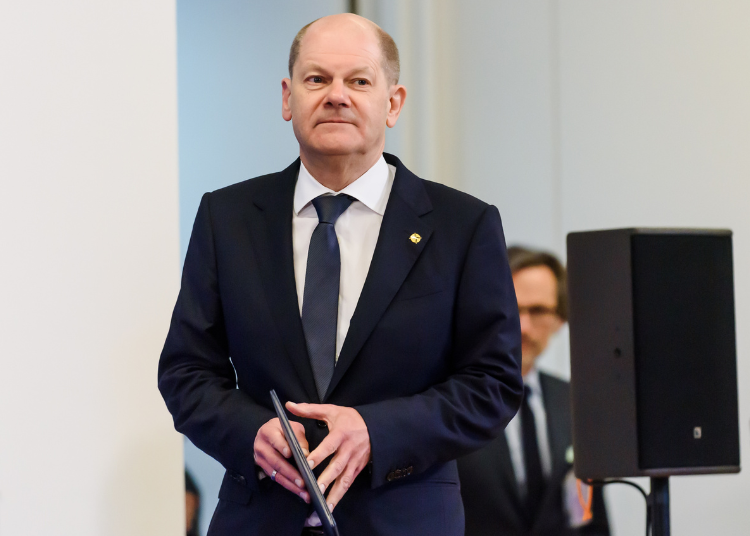Introduction
Olaf Scholz, a seasoned German politician and long-standing member of the Social Democratic Party (SPD), has held some of the country’s most influential political roles. From serving as the Mayor of Hamburg to becoming Germany’s Federal Minister of Finance, Scholz has played a pivotal role in shaping modern German politics. His election as the ninth Chancellor of Germany in 2021 marked a significant moment for the SPD, heralding a new era of leadership.
Key Information
| Category | Details |
|---|---|
| Full Name | Olaf Scholz |
| Date of Birth | June 14, 1958 |
| Place of Birth | Osnabrück, Lower Saxony, Germany |
| Zodiac Sign | Gemini |
| Age | 66 years |
| Height | 170 cm |
| Profession | Politician, Lawyer |
| Party Affiliation | Social Democratic Party (SPD) |
| Spouse | Britta Ernst (married since 1998) |
Career
Olaf Scholz’s political journey began with the Jusos, the youth wing of the SPD, where he rose to the position of deputy federal chairman in the 1980s. Alongside his political engagements, he studied law at the University of Hamburg, qualifying as a lawyer in 1985 and focusing on labor law.
Scholz’s political ascent continued in the 1990s when he became SPD district chairman for Hamburg-Altona. By 2000, he was elected SPD state chairman for Hamburg, followed by an appointment as the party’s Secretary-General in 2002. Known for his pragmatism and measured approach, Scholz served as Federal Minister for Labour and Social Affairs (2007–2009) and was later elected Mayor of Hamburg (2011–2018). His tenure as mayor was marked by infrastructure improvements and policies aimed at social inclusivity.
In 2018, Scholz became Germany’s Federal Minister of Finance under Angela Merkel’s administration, where he played a key role in managing the economic impacts of the COVID-19 pandemic. Despite facing criticism for his handling of the Wirecard scandal, he remained a steadfast figure in German politics. His candidacy for chancellor in 2021 rejuvenated the SPD, culminating in a narrow electoral victory that secured his position as Chancellor.
Personal Life
Olaf Scholz married Britta Ernst in 1998, forming a political partnership as both have pursued careers within the SPD. Britta Ernst currently serves as the Minister for Education, Youth, and Sports in Brandenburg. Scholz’s brothers, Jens and Ingo, have also achieved prominence in their respective fields of medicine and IT.
A Hamburg native at heart, Scholz maintains a deep connection to his hometown, often expressing nostalgia for its „Schietwetter“ (dreary weather) and maritime charm. Known for his disciplined demeanor, he values privacy and rarely divulges personal anecdotes, preferring to focus on public service.
Notable Achievements
- Federal Minister of Finance (2018–2021): Oversaw Germany’s economic policies during the COVID-19 pandemic.
- Mayor of Hamburg (2011–2018): Implemented social housing programs and infrastructure improvements.
- Chancellor of Germany (2021–present): First SPD chancellor in nearly two decades, spearheading progressive coalitions and climate policies.
- SPD Leadership: Played a central role in revitalizing the SPD’s electoral prospects during the 2021 Bundestag elections.
- Advocate for Social Justice: Championed initiatives like „Education Against Crime“ and programs supporting underprivileged youth.
Current Activities
As Chancellor, Olaf Scholz leads a coalition government with a focus on renewable energy, digital transformation, and social equality. His administration faces significant challenges, including managing the ongoing effects of global crises, navigating Germany’s role in the European Union, and addressing domestic economic concerns.
Scholz’s commitment to social welfare remains steadfast. His government prioritizes policies aimed at reducing inequality, enhancing education, and transitioning Germany to a sustainable energy future. Internationally, he continues to strengthen Germany’s position as a diplomatic leader, balancing economic growth with global cooperation.
Olaf Scholz’s biography reflects a career defined by resilience, pragmatism, and a commitment to public service. As Germany’s Chancellor, he is shaping a progressive vision for the country while navigating the complexities of modern governance.



